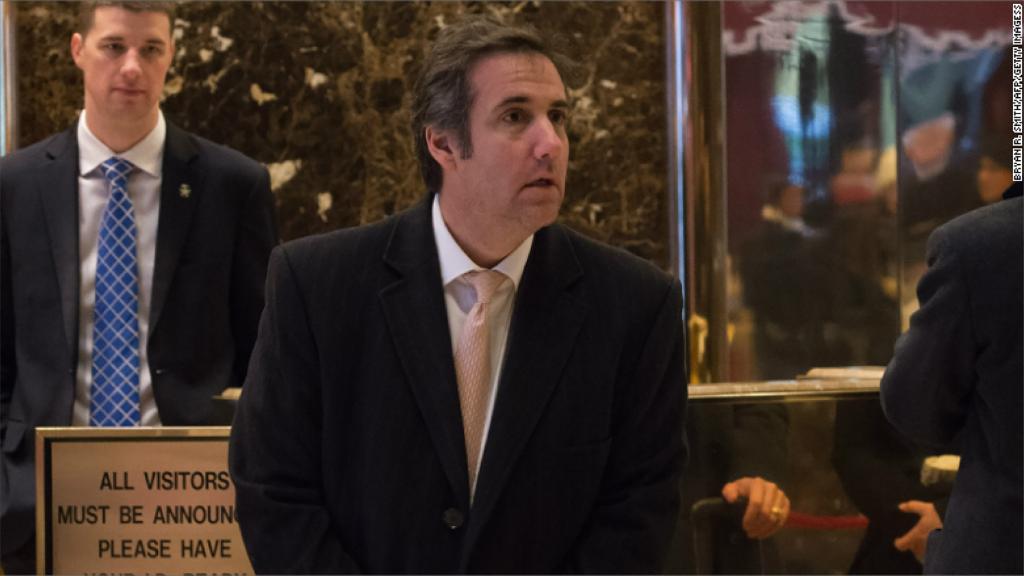
President Trump has complained about the nation's libel laws and tried to stop the publication of a book by threatening to sue the publisher. Meanwhile, one of his longtime lawyers has filed a defamation suit against BuzzFeed. And that's just from the past seven days.
Trump has also called a CNN anchor a "flunky;" asserted that an ABC reporter should be fired; and claimed that media companies will go "out of business" if he's not re-elected.
These stories are all related because they're a reflection of Trump's rising anger at news coverage of his presidency. But it's the legal comments and actions that stand out -- because it's incredibly unusual to see a political leader acting this way and it demonstrates a lack of respect for the free press.
"On one level, it's just part of Trump's daily denigration of the press," but it must be taken seriously, First Amendment lawyer Floyd Abrams told CNN on Wednesday.
Trump's libel law talk came after a week's worth of embarrassing stories about his troubled presidency, citing the new book "Fire and Fury."
Trump has called the author Michael Wolff a fraud who made up material for the book, but Wolff said he spent many days months inside the West Wing for his reporting. Wolff told the Today show last week that he spent about three hours with Trump during the campaign and in the White House.
Speaking with journalists and cabinet officials on Wednesday, Trump said, "we are going to take a strong look at our country's libel laws, so that when somebody says something that is false and defamatory about someone, that person will have meaningful recourse in our courts."
The comment evoked Trump's campaign trail pledge to "open up our libel laws," thereby making it easier to sue journalists and news outlets.
The idea has only come up a couple of times in the first year of the Trump presidency.
When Reince Priebus was the president's chief of staff, he said that changing libel laws is "something we've looked at" -- but didn't elaborate on any potential action. That was last April, and there's been nothing since.
But it is evidently still on Trump's mind.
"Our current libel laws are a sham and a disgrace and do not represent American values or American fairness. So we're going to take a strong look at that," he said Wednesday. "We want fairness. Can't say things that are false; knowingly false, and be able to smile as money pours into your bank account."
Abrams responded in an interview: "His definition of what he wants to deal with is precisely what the law currently allows you to deal with," that is, reports that are known to be false but are published anyway.
The ACLU responded to Trump's remarks on Wednesday by saying the "threat to revise our country's libel laws is, frankly, not credible." Every U.S. state has a libel law. There is no federal law.
That said, Abrams suggested that taking a "strong look at libel law" is "not a bad idea because he'll learn that it already allows recovery for knowingly false speech, even about public officials, at the same time it protects us against people in power who seek to use the libel law to suppress or punish speech that is critical of them."
Trump has a long litigious history in the business world, and that instinct came through last week when excerpts from Wolff's book first came out. One of Trump's personal attorneys, Charles Harder, sent cease and desist letters to Steve Bannon, Wolff and the publishing company, Henry Holt.
The publisher went ahead and released the book four days early in spite of Trump's demand that distribution be halted. Analysts said the cease and desist letter only added to the public's intense interest in the book.
Trump has not followed up with any lawsuit. But one of Trump's other attorneys, Michael Cohen, filed a separate suit against BuzzFeed on Tuesday over the site's publication of the Russia dossier last year.
BuzzFeed responded to the defamation suit by saying "this is not the first time Trump's personal lawyer has attacked the free press, and we look forward to defending our First Amendment rights in court."
On Tuesday night, CNN asked Cohen if he had told Trump or White House officials about the suit ahead of time, and Cohen declined to comment.


